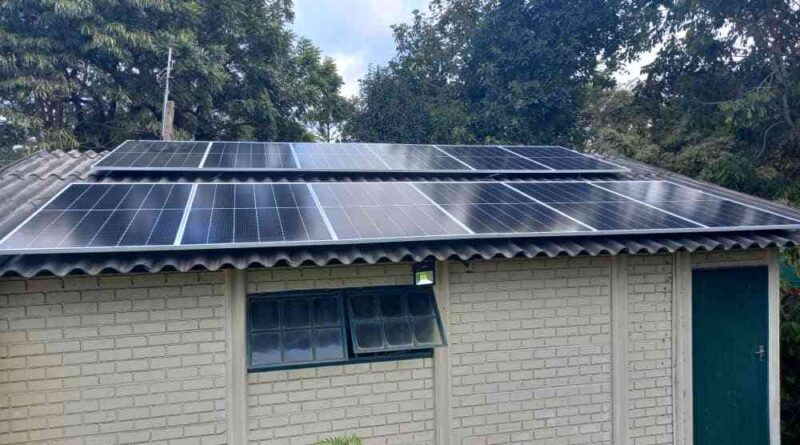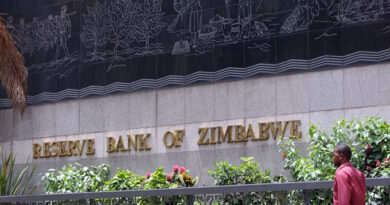FAKE PANELS, REAL BILLS: The Solar Scam Costing Homeowners Thousands
THE soaring demand for solar products, whose prices have been progressively declining over the past decade owing to technological advances and globalised manufacturing, has led to a concomitant influx of imports, including that of counterfeit products.
As locals adopt climate-friendly practices such as irrigation and use of renewable energy, investments in solar panels, batteries, inverters, water pumps and lighting systems have exponentially increased.
Unfortunately, unscrupulous dealers are capitalising on the trend by selling poor-quality and counterfeit products to gullible consumers — many of whom lack the technical knowledge to identify fakes or legal protection in such matters.
Some shops in downtown Harare, particularly along Kwame Nkrumah Avenue and Julius Nyerere Way, as well as the Gulf Complex, have become the epicentre of this illicit trade.
The situation is worsened by the widespread use of unqualified and uncertified technicians for solar installations.
In some instances, the combination of poor workmanship and fake products is having catastrophic outcomes.
“I bought a 1kVA home solar system from a shop advertising on social media. Instead of improving my life, it brought endless problems,” said Edmore Maredza, a recent victim.
“The battery would not charge properly and the system eventually caught fire — likely due to poor connections. If we had not been home, the entire house could have burnt down.”
The counterfeit trick
Investigations reveal that many products — especially inverters, bulbs and batteries — are either counterfeit or deliberately mislabelled.
Some importers rebrand low-wattage panels to inflate their value.
For example, a 20W panel may be stripped of its original markings and sold as a 40W unit at a higher price.
Several companies operating in Harare and other parts of the country have been repeatedly red-flagged for selling faulty or mislabelled equipment.
Some briefcase dealers also operate from flea markets in Mbare and along Seke Road.
“This is a classic case of consumer deception,” noted Dr Farai Mandizha, an independent energy consultant.
“When a panel marked 100W only produces 60W, the customer is robbed twice — first financially, then in performance. It undermines trust in solar energy.”
According to a South Africa-based legal firm specialising in anti-counterfeiting and intellectual property, the issue is widespread across Africa.
Regulation
The Zimbabwe Energy Regulatory Authority (ZERA) has issued warnings on the dangers of counterfeit solar products; they can cause system failures, shorten battery lifespans and pose serious safety risks.
The authority has launched crackdowns and urged consumers to verify genuine products by checking for engraved power ratings — rather than relying on removable stickers.
ZERA chief executive officer Edington Mazambani said the regulator is now conducting regular on-site inspections to identify and remove counterfeit solar products from the market.
“Our initiative aims to ensure that only genuine and reliable solar products reach consumers,” he said.
The regulator has linked substandard panels and poor installations to a rise in electrical faults.
Official statistics show that at least 27 deaths were reported from more than 200 electrical accident notifications last year, while 45 fatalities from electrical incidents were recorded in 2023.
However, the figures could be much higher as some of the cases go unreported.
To address the growing crisis, the Government is working on a comprehensive regulatory framework for the rapidly expanding solar energy sector, which is largely unregulated.
The proposed rules — Energy (Solar Products and Installation) Regulations — are aimed at ensuring safe, high-quality solar energy production.
Victims
In Mufakose, shop owner Tawanda Moyo invested US$600 in a solar setup for his store.
“Within weeks, the inverter failed and the batteries stopped charging. The dealer refused to honour a warranty, saying the product was imported voetstoots (as is). I had no choice but to buy new equipment,” he said.
In Glen View, a small business owner lost nearly US$500 when his solar batteries failed after just three months.
“When I returned to the shop, the dealer had vanished.”
Such stories are now common across Harare.
Experts warn that distinguishing genuine products from fakes is difficult.
Authentic LED bulbs take two to three seconds to light up, while counterfeits switch on instantly.
But in a market desperate for affordable solutions, many consumers overlook these signs.
Most counterfeit products are imported from China, India, Indonesia, Thailand, Dubai, Taiwan and African countries like South Africa and Nigeria.
Some shipments arrive disguised as “household electricals”, thus end up skipping the necessary checks at ports of entry.
The unchecked inflow of counterfeits, Professor Milton Hare, an energy economist at the University of Zimbabwe, warns, threatens to hurt local industries.
“Manufacturers spend millions on research, quality control and compliance. Counterfeits kill innovation and drive legitimate players out of the market. In the long run, it is the economy that suffers,” he argued.
Price war
The rise of briefcase dealers has triggered a brutal price war among traders.
While certified companies charge more for quality products, counterfeit dealers lure buyers with very low prices.
For desperate families, the gamble often ends in disappointment.
“People are literally buying darkness in a box,” said a downtown trader who opted not to be named.
Globally, counterfeiting costs companies an estimated US$630 billion annually.
In Zimbabwe, the problem threatens to derail the Government’s renewable energy agenda, which aims to increase solar adoption as a sustainable solution to the power
crisis.
Experts warn, unless the authorities tighten border checks, enforce tougher penalties and educate consumers on solar equipment, the country risks turning solar energy into a failed promise. Sunday Mail



